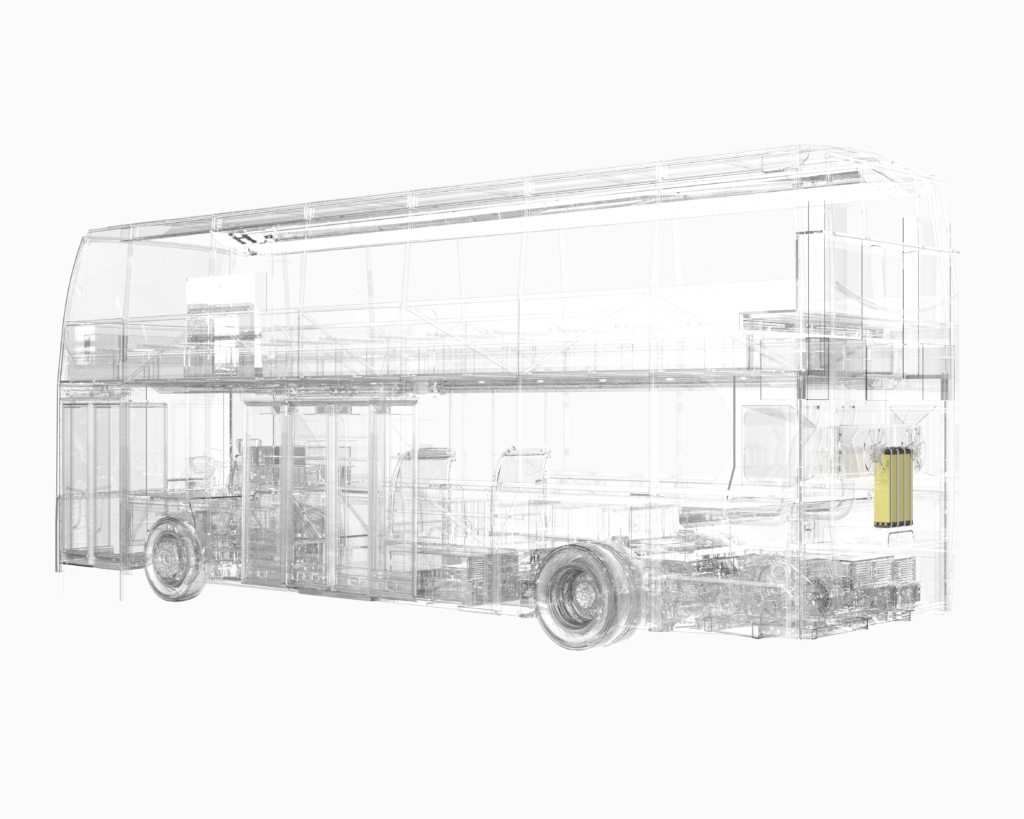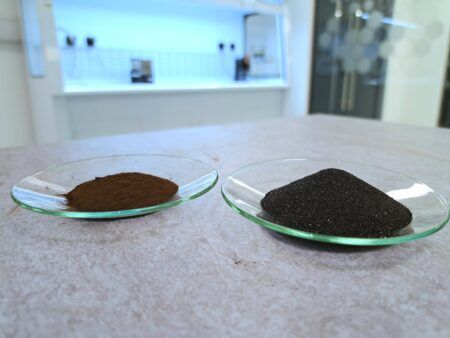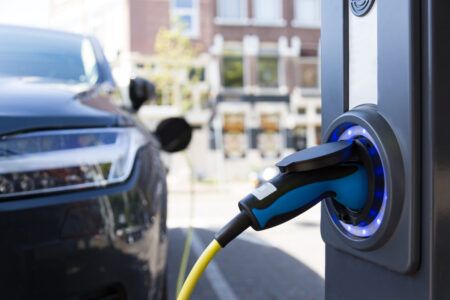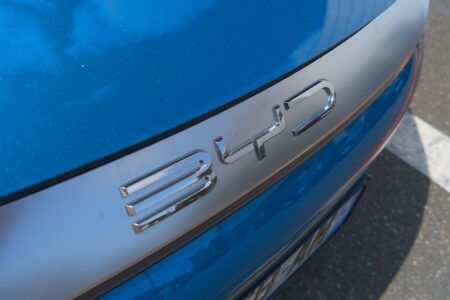Fuel cell technology expert Bramble Energy has joined forces with Equipmake, Aeristech and the University of Bath to develop a revolutionary new hydrogen double-decker bus that integrates Bramble’s printed circuit board fuel cell (PCBFC) technology. The Hydrogen Electric Integrated Drivetrain Initiative (HEIDI) has received £6.3m funding from the Advance Propulsion Centre as part of the Automotive Transformation Fund. The £6.3m awarded by the government will be matched by industry to a total of £12.7m.
The UK-based consortium will develop a hydrogen-powered double-decker bus, using a first-of-its-kind fuel cell technology from Bramble Energy, Aeristech’s high efficiency air compressor, and Equipmake’s motor power electronics and battery management system. The powertrain will be optimised through vehicle simulations carried out by the University of Bath.
Bramble Energy has been selected for this project due to its revolutionised fuel cell design and manufacturing process. “Fuel cell technology can deliver a viable net zero solution that lends itself to commercial vehicles where downtime needs to be limited,” said Dr Vidal Bharath, CCO at Bramble Energy. “This consortium of partners means that we will be able to deliver a world-leading hybridized powertrain, utilising our innovative low cost PCBFC technology for the bus sector, where there needs to be a viable electrified solution that can deliver on cost and scalability.”
In support of ambitions to build an end-to-end supply chain for zero-emission vehicles (ZEVs) in the UK, the project is expected to support nearly 500 jobs over the next decade and save nearly 6 million tonnes of CO2 from being emitted.
The UK based consortium in the HEIDI project will support fuel cell manufacturing in the UK for buses and commercial vehicles and, using a novel, low-cost method to manufacture fuel cells will accelerate the cost reduction of fuel cells, their use across society and the reduction of CO2 emissions.





